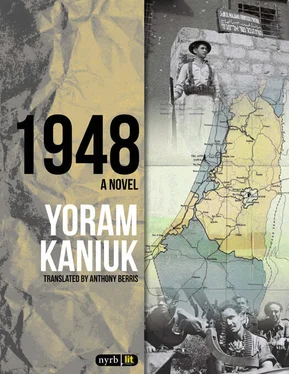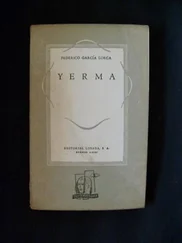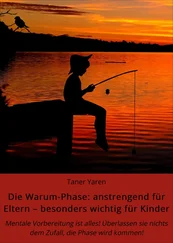I remember that we were afraid to move; we realized that they could see the whites of our eyes so we shut them. We heard them laughing. That was the decisive moment in the history of the Davidka, which by not exploding had done its job and saved us from slaughter.
Through my closed eyes I saw them brewing coffee over a fire, the wind carried the smoke toward us, and there was much gaiety there. They were in no hurry, and sang, and got bored and fired at us even though they thought we were dead, and they shouted in Hebrew because maybe they thought that dead Jews understood Hebrew. They shouted, “We’re killing the dead yahud ,” and it sounded like a poem, “We’re Killing Dead Jews,” and all the time the sham dead were being wounded and so were the already wounded, and we couldn’t move. I felt something warm oozing onto my right hand, and through the slits of my eyes I saw the vulture gliding like some god over Menachem. I realized that what I’d felt oozing onto my hand was Menachem’s blood. It oozed slowly, I didn’t hear a sound. Perhaps Uri’s right and Menachem bled someplace else, but for me he died next to me. And the crows danced to entertain the vulture and the sun was mantled in a shroud of mist, and I wanted to shout but I had no voice. I heard they said that Menachem had blown himself up with a grenade. If that’s the case then it wasn’t Menachem who died beside me, but the dead don’t care about being mixed up.
After about three, maybe four hours, I straightened up. Something horrifying made me dare, as if I’d decided to commit suicide, I couldn’t carry on getting shot at every few minutes — we could hear the bullets exiting the rifle muzzles and we heard the whistle of the shots and we waited for death and didn’t die, those who weren’t dead, that is. I knew that in the end one of those bullets would hit me. Through my shut eyes I saw the rifle muzzles of the people firing at us by the campfire, and without asking anyone we suddenly became three who stood up, and separately but together we started running up the hill toward Ma’aleh HaHamisha.
At first the enemy didn’t grasp what was happening. When they did they started shooting again. They fired like maniacs but apparently because of the surprise their aim was off and we managed to reach a coppice and were swallowed up among the trees. Feeling helpless, half dead, tired, thirsty, and hungry we reached headquarters at Pension Fefferman. There was nobody there except for a frightened nurse who looked at us like we were shadows. She’d apparently seen the battle from the hill and perhaps she was frightened because we looked like dead men. She bandaged us and perhaps even gave us some clothing, my memory has been erased here, and we took off to find the commander who’d fled. One of us, whose name I think was Mizrachi, ran to find him and kill him, but he was told that he’d been flown in a Primus to the fighting in the Negev.
Only that night we heard that the main battle at Nabi Samwil had been a resounding failure. On that hill there were dozens of dead and many wounded, including those from our side who had died. I searched for Menachem, but he was nowhere to be found. I think I was shell-shocked or battle-fatigued, which was unknown back then, and I entered a frozen desolation, and apparently ran and leapt, I dimly remember how I was there, looking for my friend who died beside me, and perhaps I drank some water, perhaps I hit myself, perhaps I looked for the vulture that could no longer be seen. We had been twenty-three men, and eight came back, or so I think.
A friend told me later that he was sent to check out the dead on the hill. There were some, he said, that had been found killed by their own hand, by a grenade or gunshot. Commanders had disappeared and apparently hidden. There were those who fought, but without a commanding officer they didn’t know what they were doing exactly, and didn’t know whether they were firing at their own men or the enemy, who fought bravely and surprised us, employing excellent stratagems. It was then quietly decided, without saying a word, that there would be no further discussion of this battle. To this day the Palmach safeguards the secret of Nabi Samwil. Instead of investigating the fuckup they let it pass. That’s a pity. Heroism is not only in winning but also in failure. Failure in war or art or anything else can be an encouragement, to invent wise consolation and vanquish the next failure with itself.
Six months later, my leg in a cast and moving with difficulty, I went to my dear friend Menachem’s home by the sea, not far from the Tel Aviv harbor. His mother was standing by the ricinus tree in their yard, and his father, an old teacher, was watering a dried-up tree and wore a faded wide-brimmed hat. I told his mother what had happened and how we were fired on and how Menachem had died beside me and I survived, and she gave me a bitter smile and said, Pity it wasn’t the other way around.
I don’t remember when we went out to the slaughter mistakenly called the Battle of Saint Simeon’s Monastery. I didn’t take part in the first attack. I think I’d been asked to sort ammunition at Kiryat Anavim or in Jerusalem and apparently didn’t continue with the forces, and I remember feeling guilty about not being there. Some of my friends were and one of them came back and gave me a watch that belonged to a guy who’d died, because mine was broken, and the watch that belonged to the dead friend had a leather cover so it wouldn’t shine in the dark. I did take part in the second attack, a few hours later. Perhaps we’d come from a building on the fringes of the Katamon neighborhood in Jerusalem, or Givat Shaul in West Jerusalem, or from the Valley of the Cross. We’d apparently waited. I remember a mess of charred bushes, shells, a thorny bush pricking me, the roar of vehicles from afar, grave-looking stone buildings, and gunfire.
We charged and were shelled and took rifle and machine-gun fire, and I’d reached a green-shuttered building adjacent to the monastery. The firing intensified. There was a lofty coppice of pine trees. All I could think of was that the poet Tschernichovsky’s wife had lived in the monastery. I remember shouting and more gunfire. There was a terrace, and we lay by it, and after a while went up or down and I’d somehow reached the building with the green shutters, where a fire broke out whose stench was awful, and we took the building and then the monastery.
I saw somebody walking through the smoke, and an Arab armored vehicle fired on us as we went in, and then another one. Every time shrapnel hit one of the monastery bells it tolled as if we were at a funeral in a small American town. After the battle, which I don’t remember, we took over the monastery and, I think, two adjoining buildings, one of which was apparently the one with the green shutters. The assault on us intensified and now we were under siege. We were surrounded by a determined enemy firing with everything they had. And they had a lot. We had bubkes, nothing — a few mortars and Williams machine guns. I remember terror and how Raful — Rafael Eitan — who later became chief of the general staff, was wounded and that I helped him into a chair on a table so he could carry on firing. Somebody yelled at him to stop and let the medic attend to him, and with a wail he’d shouted, But I’m killing the enemy!
I was lightly wounded, and then ran out of ammunition. Shklar the medic, who was a Holocaust survivor, though I don’t remember how he came to our battalion, rescued a body from the other side of the courtyard because he saw the enemy approaching and was afraid they’d start mutilating it, and then ran from one wounded man to the next, and stopping by me, smiled, gave me some ammunition, and I carried on firing. After a while Dado our commander came in and took me and another guy outside. I’ve no idea why. There was a cloister, with just a few meters separating us from the enemy, and we had to run between the low wall and the monastery building. It was like being in a tunnel of death, and people were dropping every minute, dead or wounded. I saw two young women in the entrance. They said they were nuns. I didn’t remember seeing them earlier. Dado ran upward and I looked for a cigarette. Somebody fired at me and I crouched. The bullet hit one of the women who’d said they were nuns. I looked at her. The shot shook her body. Her gray dress was cut to ribbons. Someone yelled at me to come up, then he died and fell at my feet. All this time we could hear the savage screams of the attackers. A pall of smoke rose from the flames. I went back down again because somebody called me, but he fell, wounded. When I got back the nun’s clothing had been pulled up. That was the first time I’d seen female nudity. She was young.
Читать дальше












